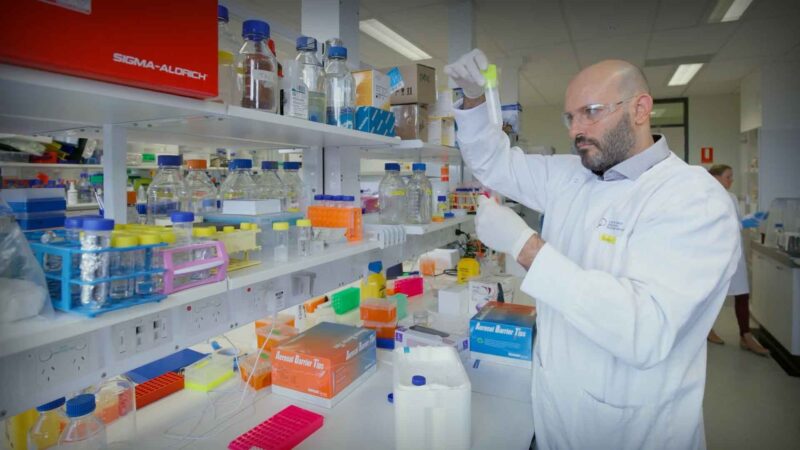ROLE OF COMMUNITY PARAMEDICINE IN NON-EMERGENCY PRESENTATIONS
Dr Robbie King
Lecturer in paramedicine and researcher, Australian Catholic University (ACU) Brisbane &
Senior Advanced Care Paramedic/Community Paramedic,
Sunshine Coast District, Birtinya Station,
Queensland Ambulance Service, Australia
RESEARCHER PROFILE
Filmed in Brisbane, Queensland | November 2024
Dr Robbie King is a Lecturer in paramedicine and researcher at the Australian Catholic University (ACU) Brisbane. He also continues to provide clinical care as a registered paramedic for community members served by a jurisdictional ambulance service. Dr King has gained significant experience working in an advanced practice, community paramedic style role, holding expert clinical insight into the nuances of paramedic-led community-based healthcare for non-emergency presentations. This often involves adopting a biopsychosocial approach, rather than following the biomedical model more associated with emergency medicine and paramedic culture.
To encourage a patient-centred approach to paramedic-led healthcare by exploring the unmet needs of people requesting unscheduled emergency ambulance care, Dr King advocates for greater consumer engagement in paramedic research. He completed his PhD in early 2024 which explored the patient perspective of paramedic-led healthcare when patients were not transported to hospital. This research generated a theory that describes a process of patients ‘restoring self-efficacy’ when their vulnerabilities are validated, and they receive clinically competent and compassionate care.
Dr King has presented at professional symposium internationally, and in Australia where he continues to encourage greater consumer involvement in research to inform development of paramedic education and ambulance service models of healthcare delivery. Dr King is a Fellow of the Australasian College of Paramedicine and member of various professional research and Community Paramedic working groups. His research focus includes exploring the role of community paramedics in improving health literacy, self-efficacy, and addressing the psychosocial needs of patients requesting emergency ambulance services.
You Might also like
-
Radiation therapy techniques and combination treatments for sarcoma
Professor Angela Hong MBBS, MMed, PhD, FRANZCR is a Professor at Sydney Medical School of the University of Sydney. She is a radiation oncologist and has been a member of the Multidisciplinary Bone and Soft Tissue Tumour Clinic at Royal Prince Alfred Hospital/Chris O’Brien Lifehouse for the past 15 years.
As a radiation oncologist located in Sydney, Australia, Professor Hong is focused on treating patients with bone and soft tissue sarcoma. And as a clinician scientist, her research focuses on developing innovative radiation therapy technique and combination treatments to improve the outcome for patients with sarcoma.
-
Liver cancer biomarkers, risk prediction & progression
Dr. Rodrigo Carlessi is an expert in Cancer Genomics and Molecular Biology, with an extensive track record in liver cancer research. He leads the Cancer Genomics Group within the Liver Disease and Regeneration Laboratory at the Curtin Medical Research Institute. He has an impressive publication record, with 43 manuscripts that have collectively garnered over 2,680 citations. His research leverages cutting-edge genomics and transcriptomics technologies, as well as long-read DNA sequencing, to explore mechanisms, identify biomarkers, and develop therapeutic targets in liver disease and cancer.
-
Health impacts of donor milk for pre-term babies
Professor Alice Rumbold is Theme Leader of SAHMRI Women and Kids, managing a multidisciplinary research team focussed on improving health outcomes for women, babies and families. She also holds an affiliate position as a Research Leader within the Robinson Research Institute at the University of Adelaide.
An epidemiologist and health services researcher, she is internationally renowned for her leadership of large-scale clinical trials, epidemiological studies and systematic review activities to improve perinatal and reproductive health care. She is passionate about improving health outcomes for women and babies, particularly those experiencing vulnerability. Her current research interests include preterm birth, breastfeeding, human milk banking and infertility



